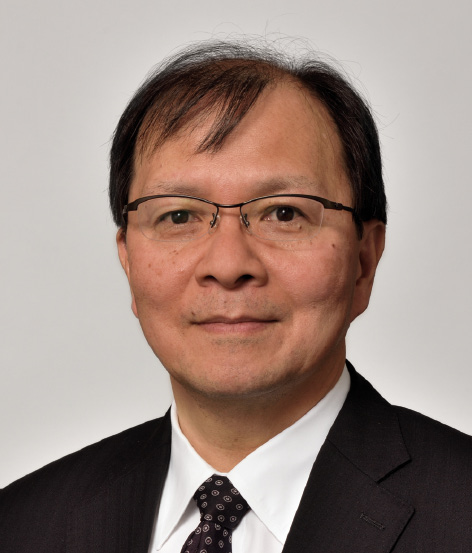HOME > Publication & Reports > Annual Report 2016 > Greeting from the President
Greeting from the President

Founded in 1962 as a hub for cancer treatment and research in Japan, the National Cancer Center has since become a strong leader in the field. The Center was reborn as an Independent Administrative Institution in April 2010, and designated a National Research and Development Agency in April 2015, giving it the role of an agency to handle those issues that are difficult for universities or private enterprises. At the same time, there is a need to produce research results and optimize research and development results on a global level. In August 2015, the Hospital (Tsukiji campus) was designated a core hospital for clinical research, followed by the Hospital East (Kashiwa campus) in September of the same year. It is hoped that we will take on the central role of international standard clinical research and investigator-initiated trials. Especially from both basic and clinical viewpoints, it is essential to be significant as a facility that can practice cancer control from both sides (research as well as treatment to contribute to control over cancer), and that can propose these strategies to Japan and the Japanese people.
Currently, one in every two Japanese people will contract cancer in their lifetime. Nearly one million people are newly diagnosed with cancer in a year; and as the population is aging, we can expect the number of cancer-affected patients to increase in the future. The mission of the National Cancer Center is not only to provide the best possible care for each individual cancer patient based on genomic and other information, but we must also prevent the onset of cancer by identifying high-risk groups and developing and implementing appropriate prevention measures. In other words, this is the same as practicing precision medicine on a patient-by-patient basis. To achieve these objectives, as a foundation of research to elucidate traits and diversity of cancer in individuals, it is essential to plan forceful promotion of integrated omics research including genomic analysis, and optimize individual treatment and prevention methods based on the results. Understanding the localized immune response in tumor tissue is also an urgent issue.
In view of these points, we present the following points as issues that must be handled as priorities in the slogan "Cancer cure and prevention, symbiosis with cancer" of the 10-year Cancer Control Strategy (a new national project for cancer strategy, started in 2014), and even in the National Cancer Center's planned course of action.
hStrengthening the research and clinical systems to resolve the issue of unmet medical needs
hMaintaining a system and proposing policies to provide optimized treatment and proactive medical care for individual patients based on genomic information
In addition to these important issues, experts at both campuses must combine their wisdom and experience and act as a single unit in order to take on the issues of promoting new cancer control strategies and policies. Furthermore, it is essential to coordinate with industrial, academic, and governmental researchers and research institutions, and to build a cooperative relationship that will be effective in gaining control over cancer. The wishes and hopes of Japan's people (including cancer patients and their families) are broadly reflected as issues, and we must work toward solutions for these. We want to develop a system for providing medical care (and a foundation for research for such system) that will allow all cancer patients and their families to always remain hopeful.
Hitoshi Nakagama, M.D., D.M.Sc.
President
National Cancer Center
